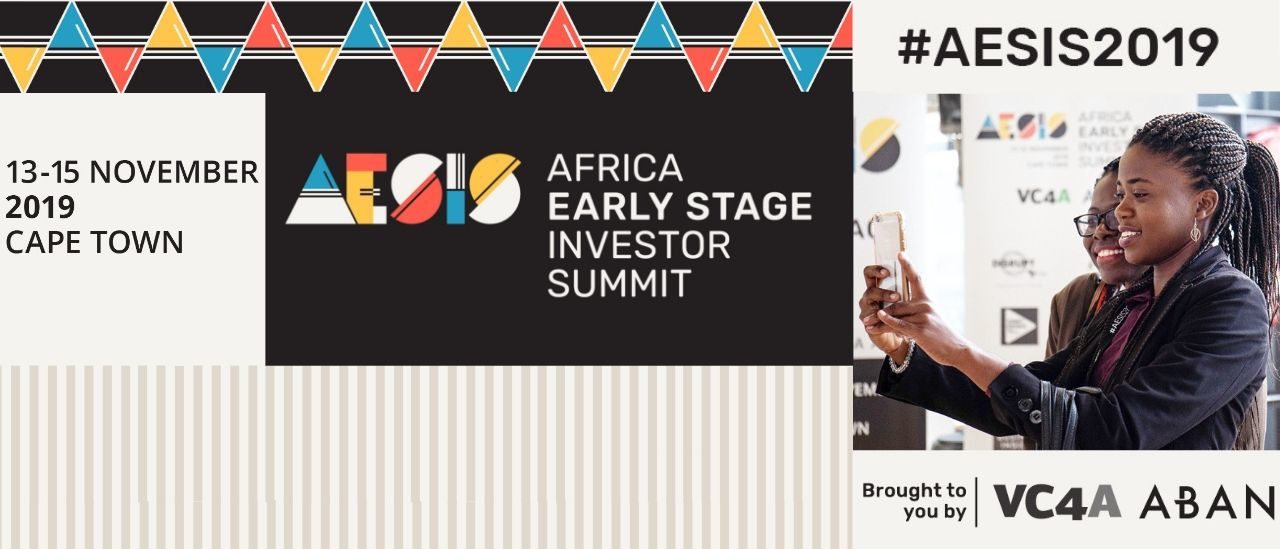A New Era of Startup Ecosystem Blossoms in Africa
There are reliable indications that Africa is witnessing a breakout of high numbers of startups attracting major financial commitments from across the world which sets the stage for the emergence of a home grown African venture capital industry. This was brought to the fore recently at the sixth edition of the Africa Early Stage Investor Summit (AESIS2019) held in Cape Town, South Africa. The Summit identified the growing interest from foreign investors especially Chinese investors towards Africa’s startups. This they highlighted as reason behind the high startup valuations as entrepreneurs increasingly look to international markets and the question if local entrepreneurs are really benefiting from the influx of funding.

The Summit equally offered industry leaders the opportunity to share insights and lessons learned from investing in the continent’s top businesses. Also participants dove head-first into these and many more startup ecosystem topics with African powerhouses like Pieter de Villiers, Eghosa Omoigui, Keet van Zyl, Rebecca Enonchong, Ido Sum, Lauren Cochran, Tomi Davies, Marième Diop, Johann Choux, Paul Cook, Yassine Oussaifi, Llew Claasen, Abu Bakr Cassim, Olivier Furdelle, Khaled Ismail, Ben White, David van Dijk and many others, leading the conversations.
Read also : $188m German AfricaGrow “fund of funds” Launched For African Startups
The 2019 event comprised three days of rich content and networking activities including new components this year such as a full-day Fund Manager Training and curated speed-dating sessions between Limited Partners and General Partners. Both of which were oversubscribed. The first day of the Summit also included the first Annual General Meeting for the African Business Angels Network (ABAN) as efforts continue to spur angel investing across the continent and to unlock resources for starting companies at their earliest stages of development.
Co-organizers, ABAN and VC4A, welcomed 330 investors representing Africa’s early stage investing ecosystem. The Summit attracted the highest ever number of early stage African investors from 35 different countries representing 110+ investor organizations, funds, family foundations and business angel networks. The objective remains to bring together leading investors from Africa and beyond to network, exchange insights, create partnerships and make deals.
Read also : African Sports Startups Get A New $20 Million Fund From Nazara Technologies
The Summit also noted that there has been an increase in the number of women (co-)founders in Africa which has risen to 18% in 2019. Africa’s startup ecosystem, as of 2018, is on par with Southeast Asia’s of 2014, with major increase in early-stage investing expected. Ecosystem actors were admonished on the need to stop looking to Silicon Valley, instead they should create their own ecosystem model and develop pathway for growth of African startups by creating social impact as investing for profit remains leading driver for investor participation. Equally critical is the need for fund managers and investors to play the long game to reap any returns while there is a need for more fund managers to enter the industry.
Participants were treated to the co-organizer’s VC4A Venture Showcase which featured 12 vetted Series A-ready companies from Egypt and Algeria to Nigeria and South Africa. Their solutions range from VR therapy to more efficient transport to an easy cashback app, and more. The Showcase simultaneously helps build pipeline for some investors and create exists for others, propelling the African startup ecosystem forward.
Read also : A New $100 Million Fund Launched For African Tech Startups By Xecced Ventures
Several past Showcase ventures currently appear on the list of companies that raised more than USD 1 million in 2019, with FlexClub from the 2019 Showcase making an appearance as well. In addition, the 2018 alumni Nawah Scientific and the 2019 participant LifeBank, have just been announced the winners of the Jack Ma Netpreneur Prize. Altogether, VC4A’s Venture Showcase companies have raised more than USD 36 million to date.
Rebecca Enonchong, female founder and treasurer of the African Business Angels Network (ABAN) announced the Catalyst initiative to summit attendees. The initiative, in partnership with Afrilabs and funded by the AFD will stimulate angel investing across the continent by matching investments up to EUR 60,000. She added that this mechanism helps build layers in the ecosystem and creates more pipelines for investors since angels will be able to invest in more businesses.
Read also : The 3 Fundamental Mistakes I Made Founding a Startup
Everyone at the Summit agreed that Africa’s startup ecosystem is maturing. In 2019, over USD 1 billion has been raised with 83 deals alone exceeding USD1M and with 18% of those companies co-founded by women. “More women than in Silicon Valley,” as VC4A’s Ben White pointed out in his opening keynote. However, as anyone present at the Summit could sense, the hunger and energy to do better and to do more is mighty. With the quick adoption of Netflix across the continent, as Rebecca Enonchong highlighted to the amusement of all in the audience, the potential is endless. The key conclusion at the Summit was that for Africa’s ecosystem to grow and succeed, Africans should be treated as consumers, like anyone else.
Kelechi Deca

Kelechi Deca has over two decades of media experience, he has traveled to over 77 countries reporting on multilateral development institutions, international business, trade, travels, culture, and diplomacy. He is also a petrol head with in-depth knowledge of automobiles and the auto industry.




